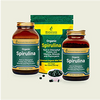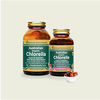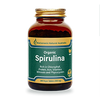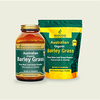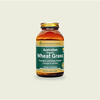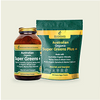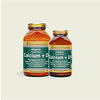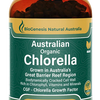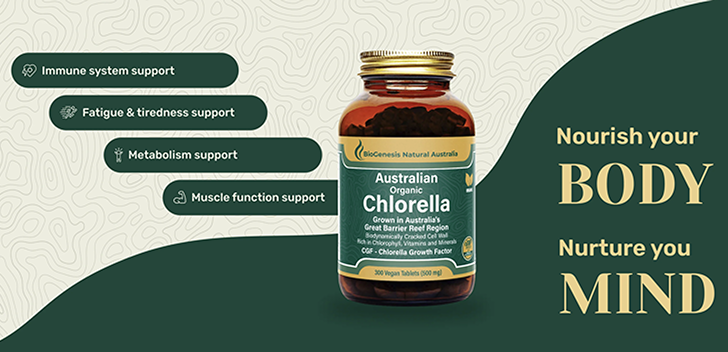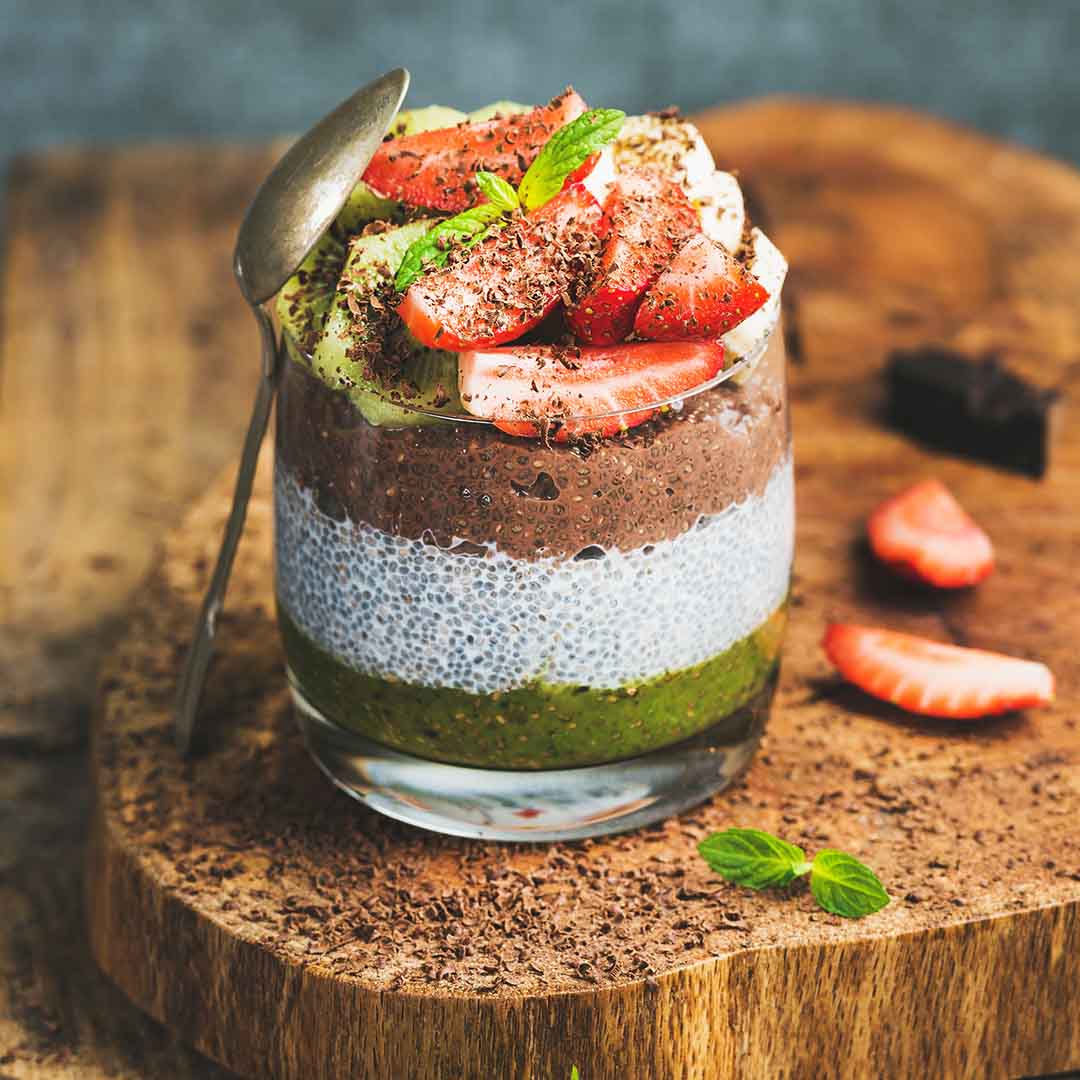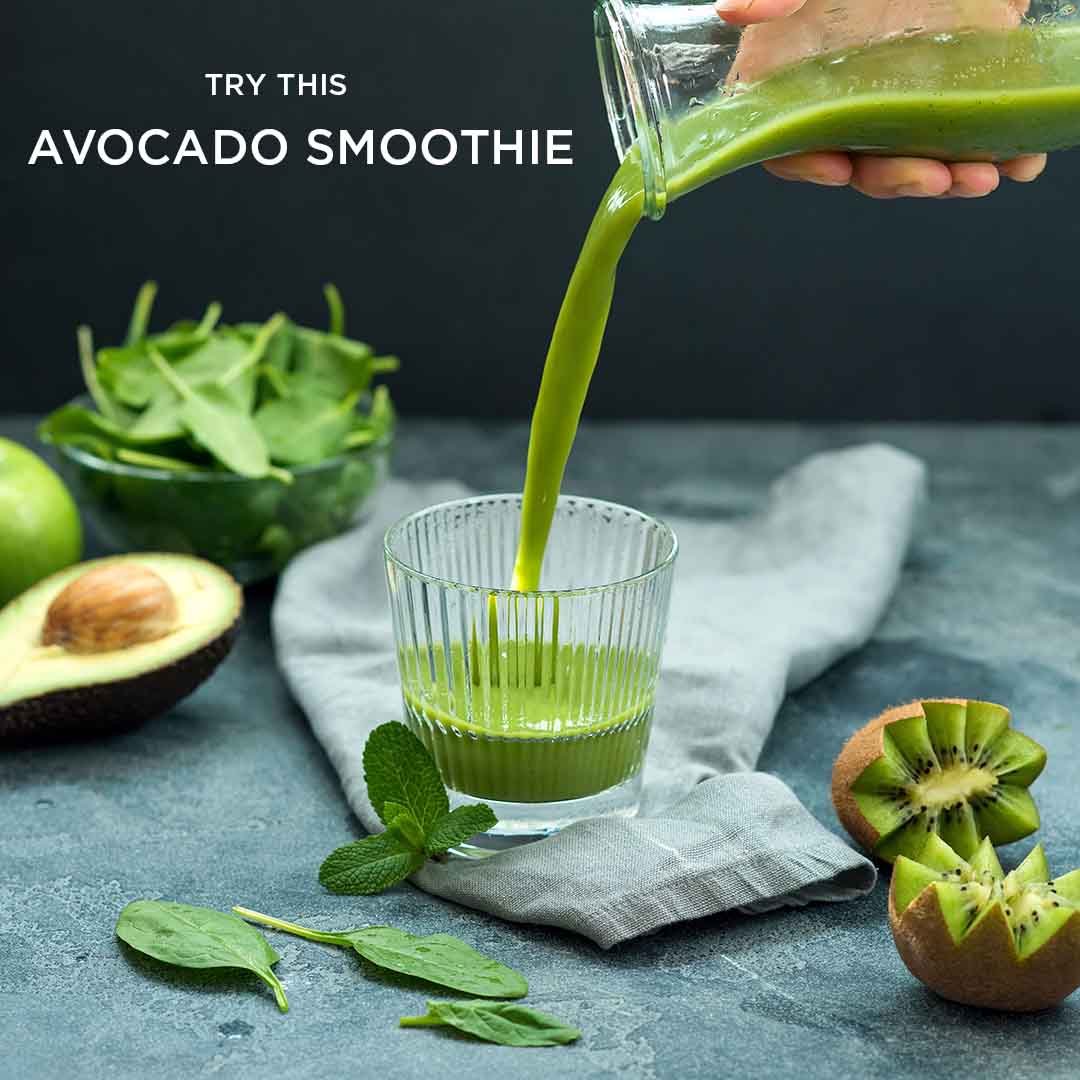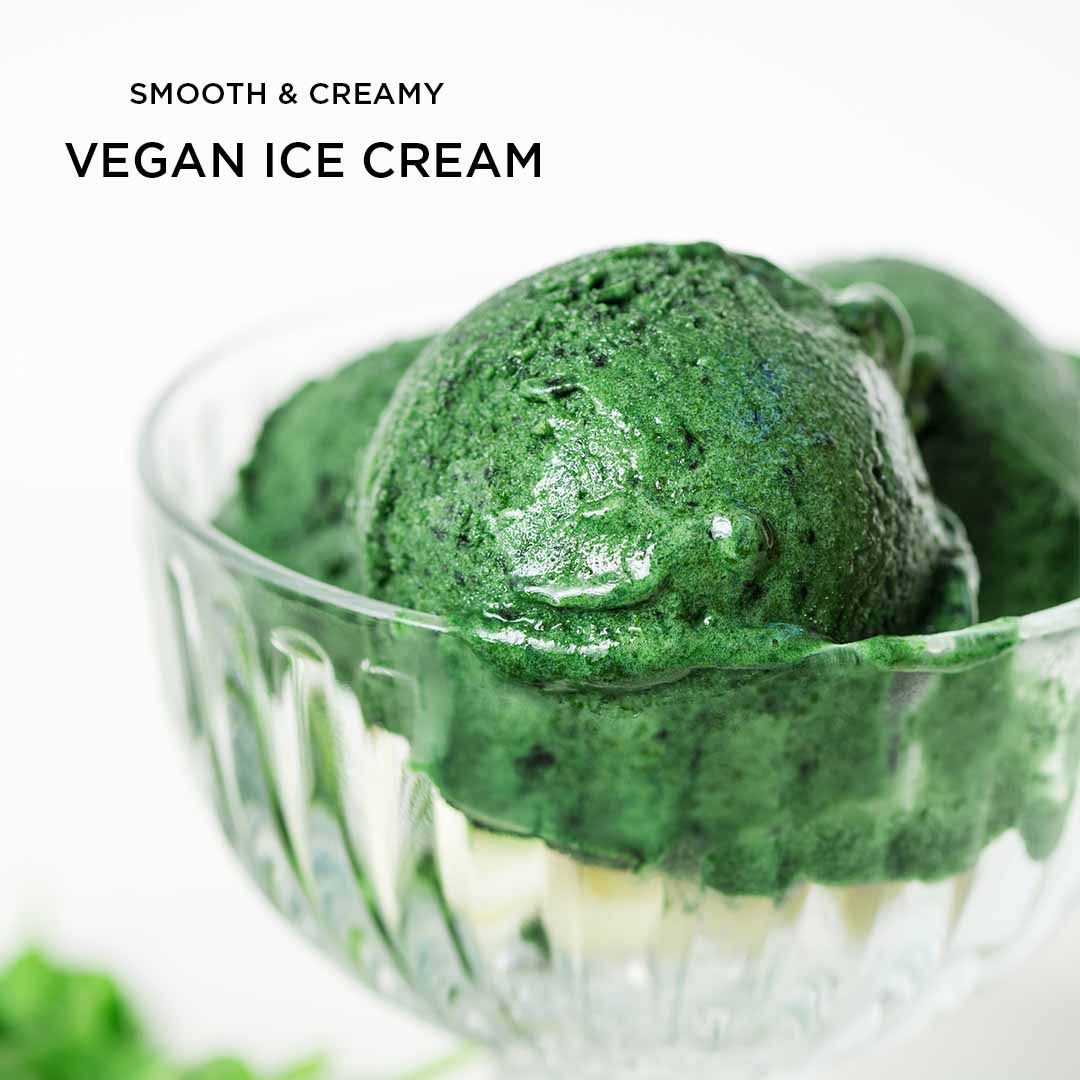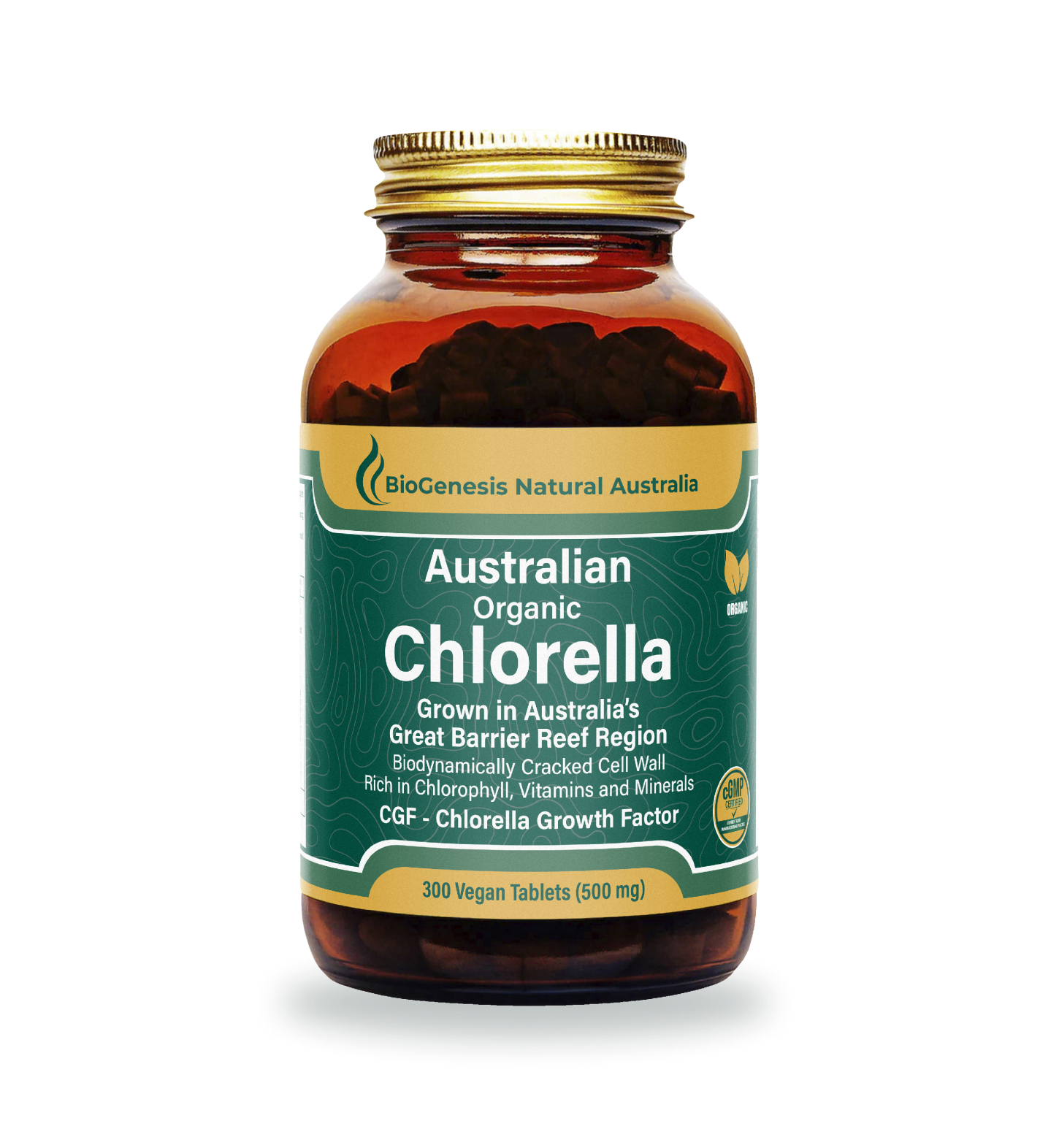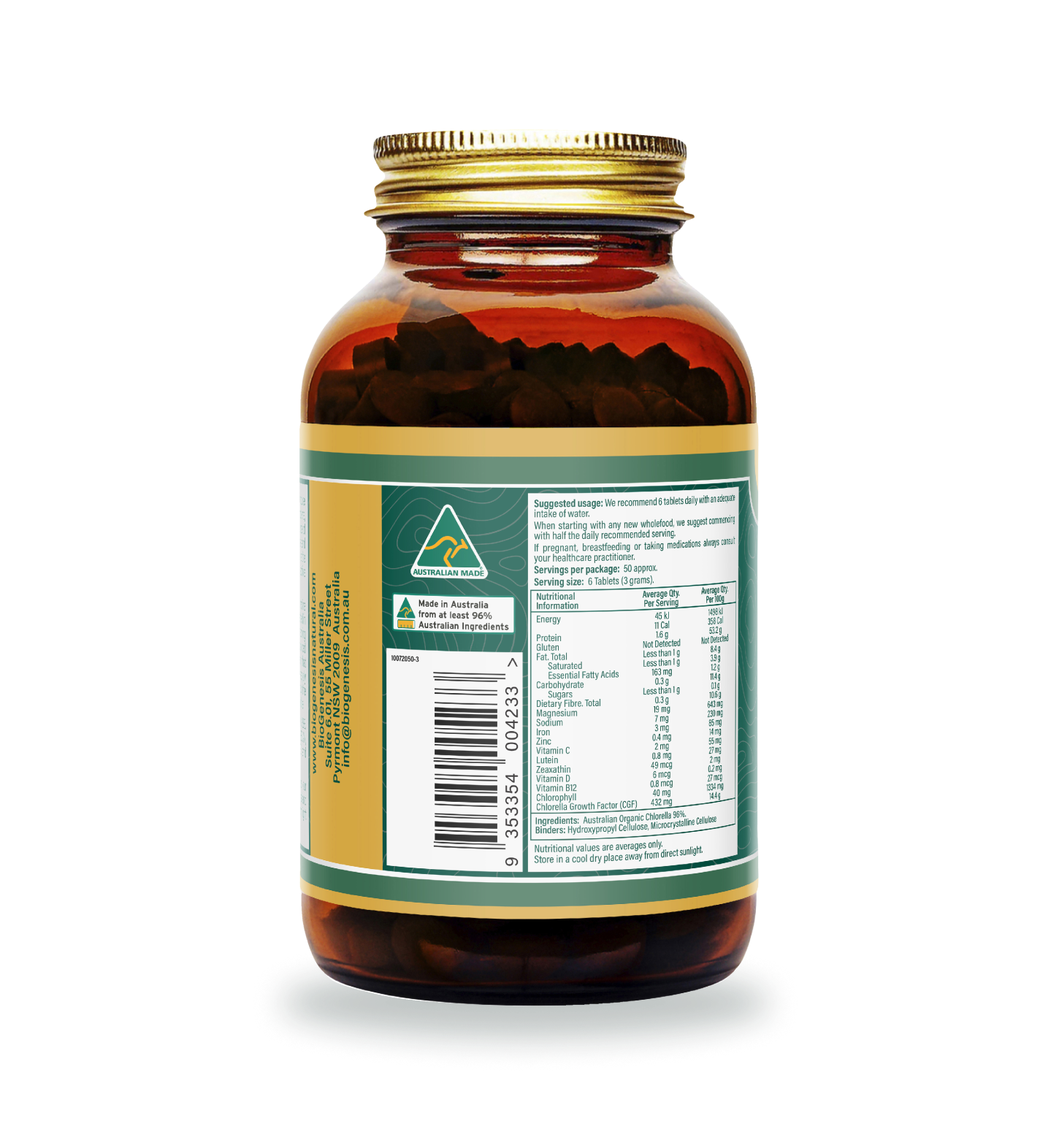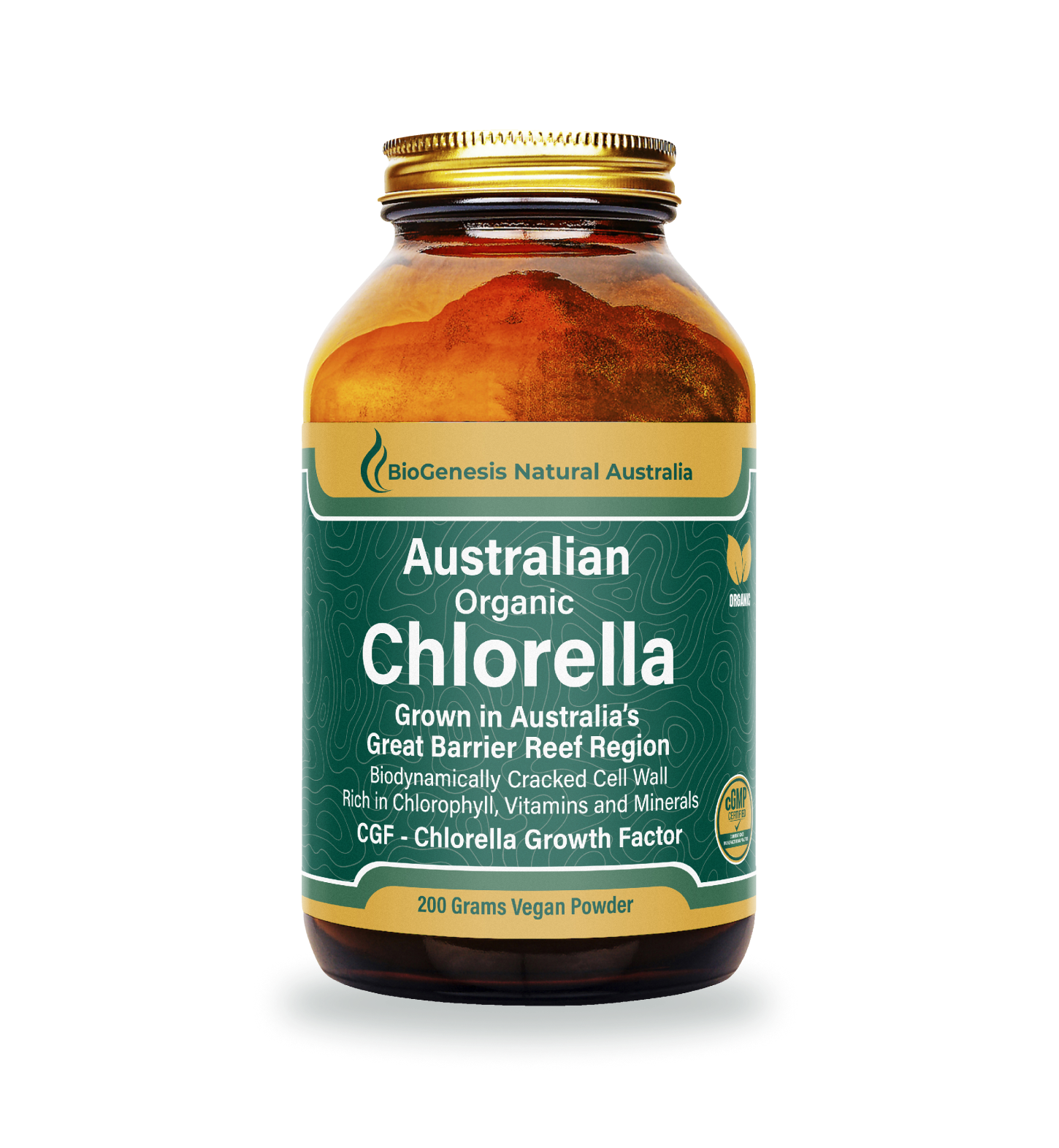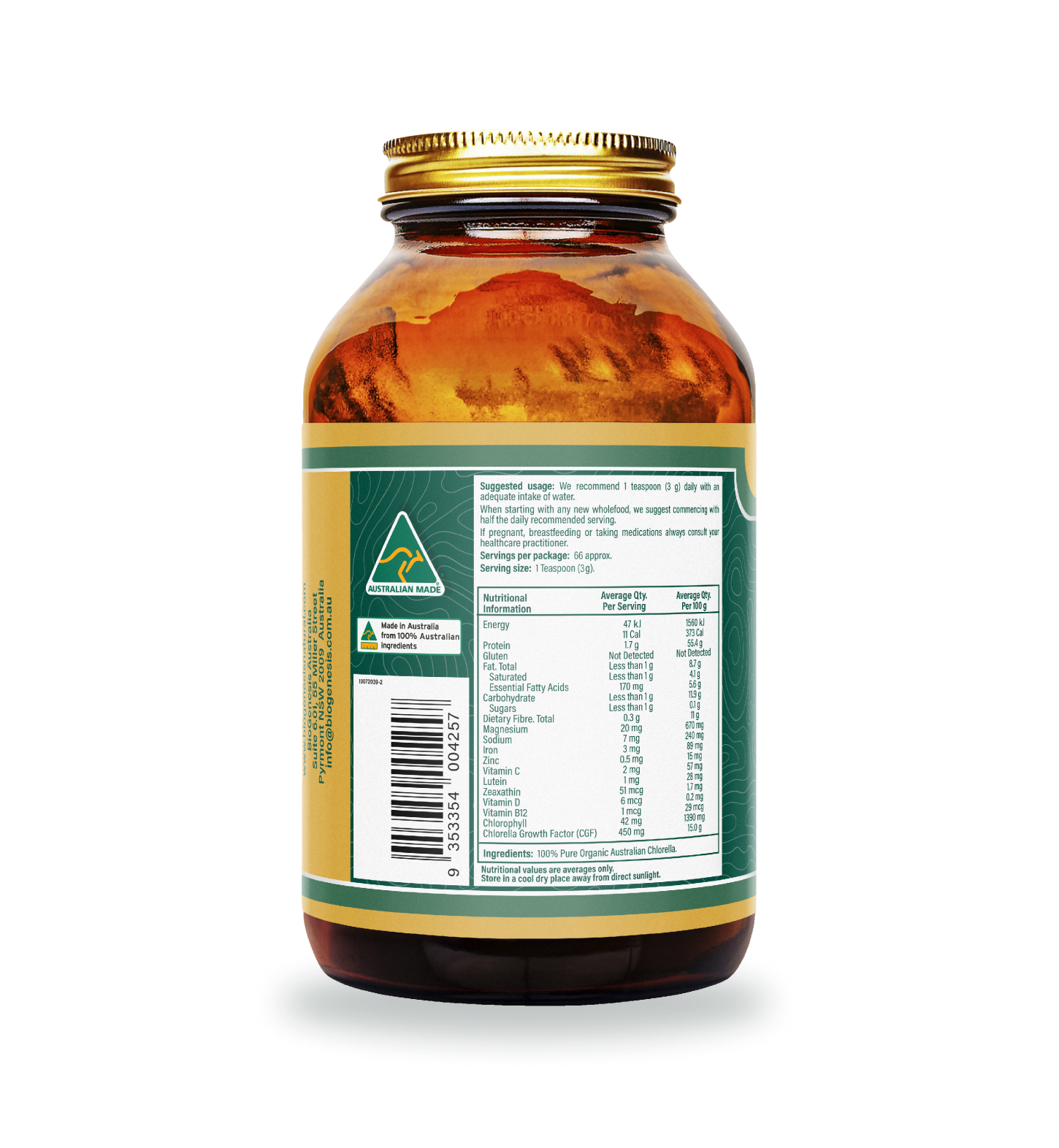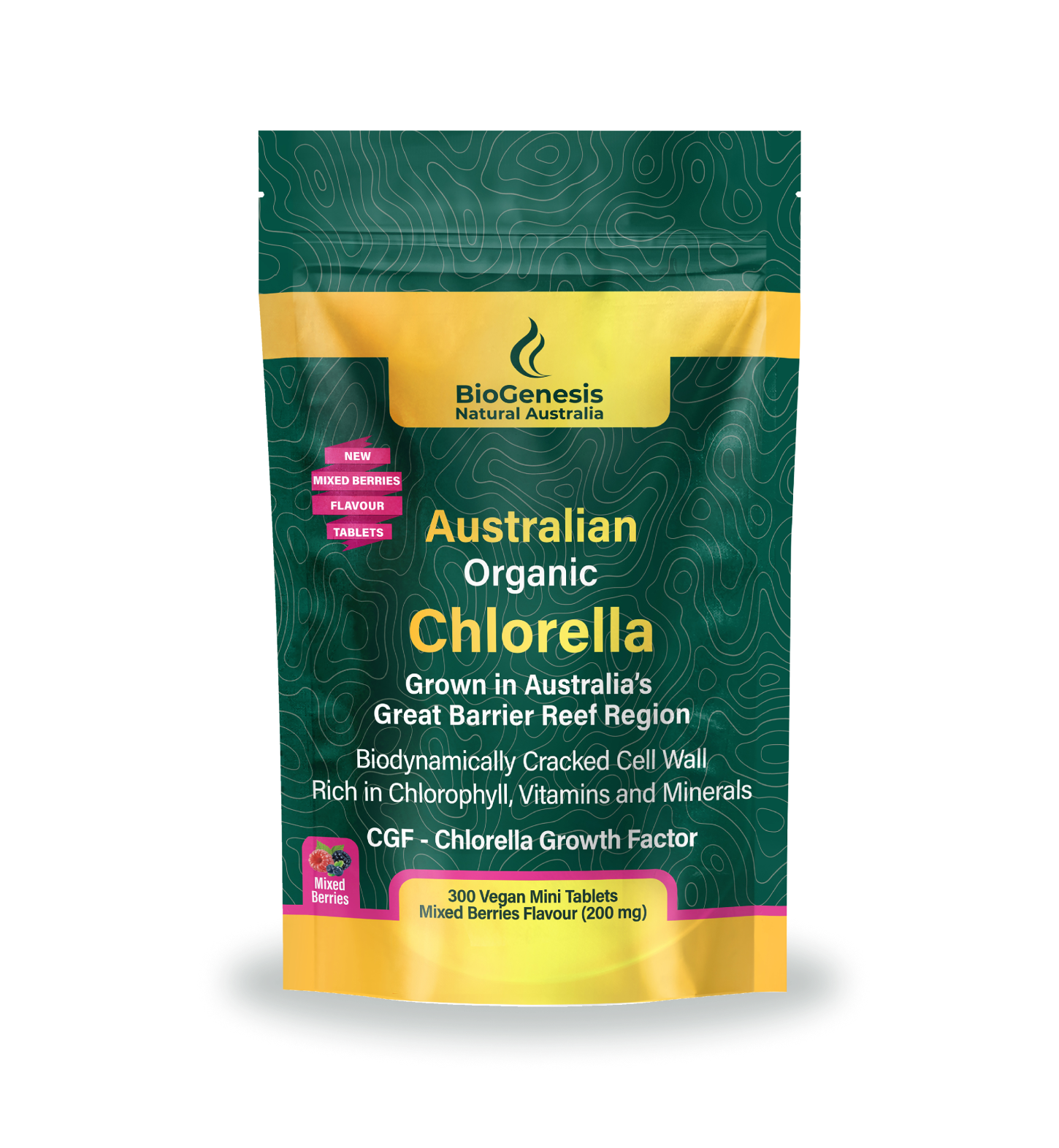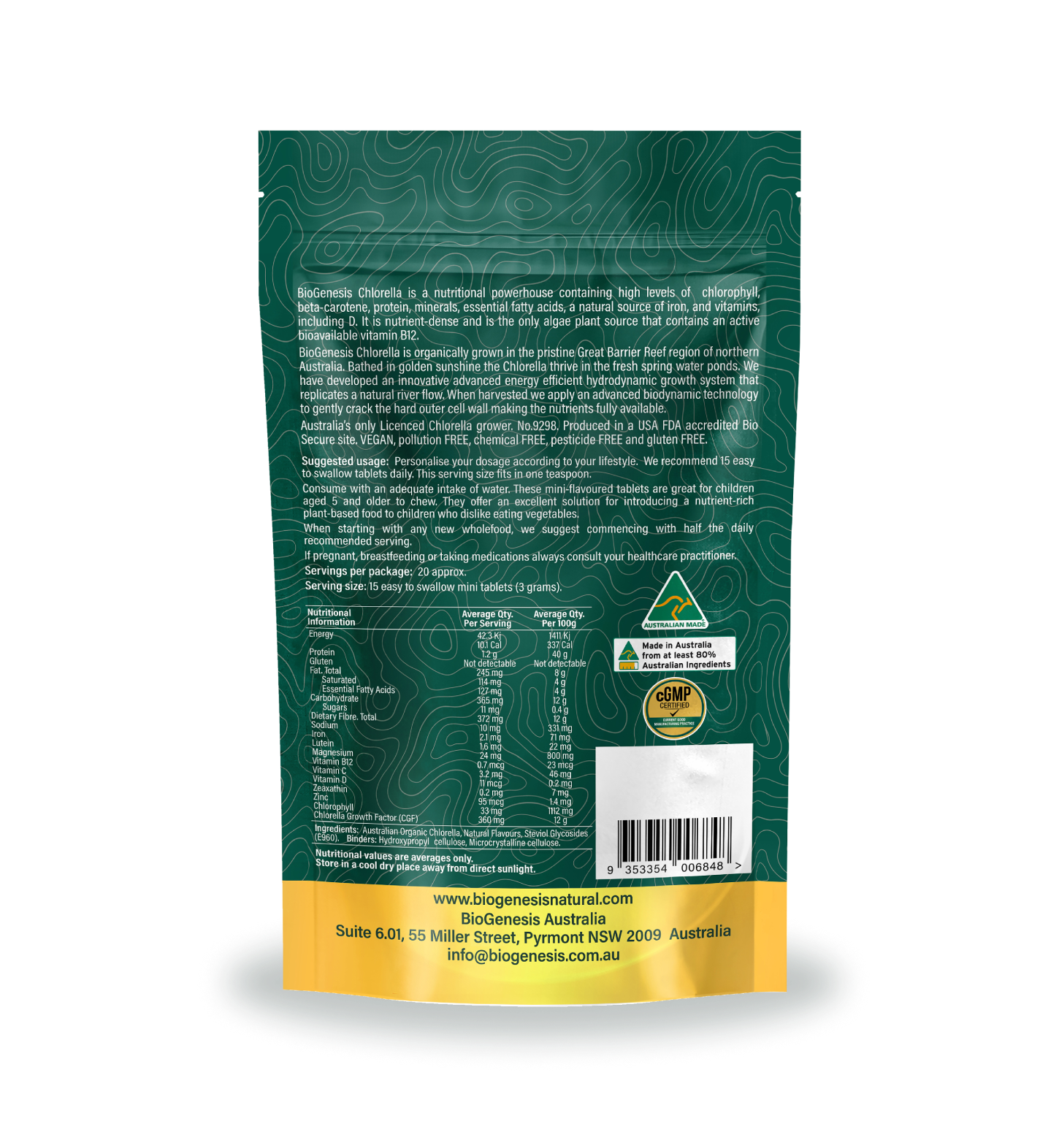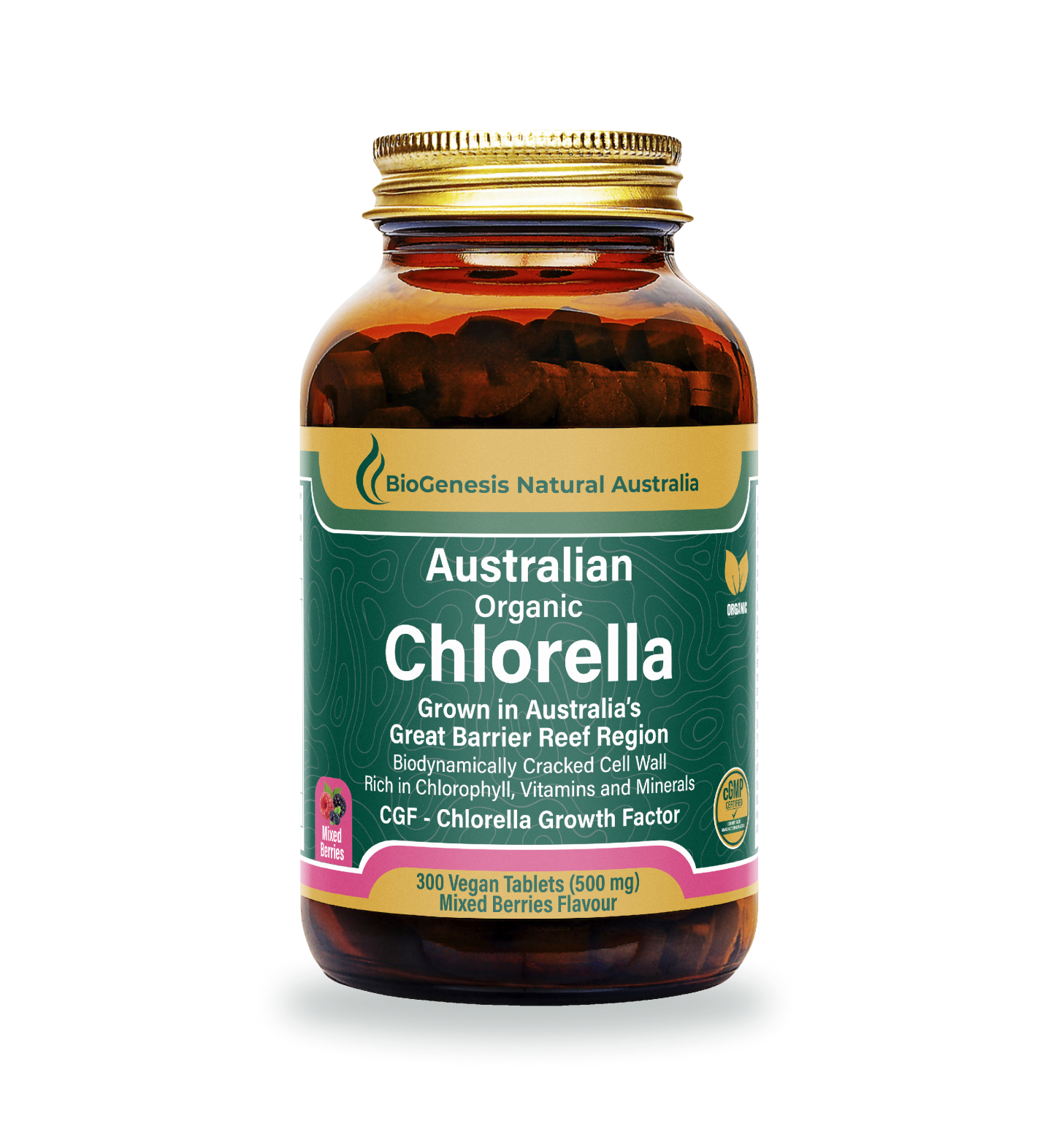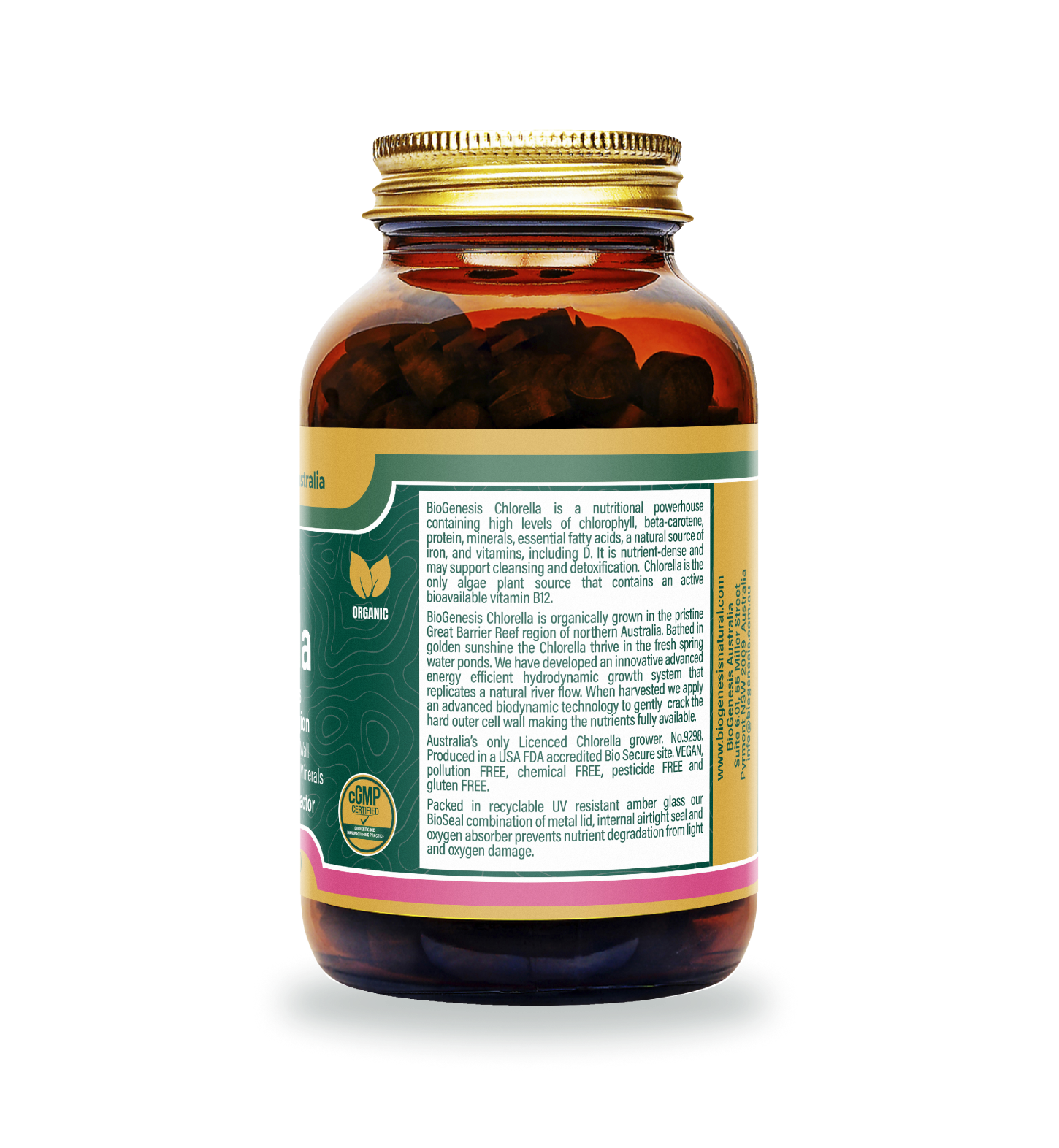
Can Chlorella Keep You Fit And Healthy?
Immune health is a complex topic relevant to the health and wellbeing of everyone. It's common to think of the immune system simply as the body's innate defense from getting sick, and while this is true, it's not the whole picture. Far beyond protecting the body from seasonal illnesses, the immune system is vitally essential to keep humans alive and healthy on a day-to-day basis. The immune system is a barrier of defense between the internal body's ability to maintain homeostasis, and the limitless deadly microbes in the outer world capable of disrupting it. There are lifestyle factors that can impede the proper functioning of the immune system, and reversely, there are actions that can help support immune health. One interesting addition to the list of beneficial lifestyle factors is consumption of the algae chlorella, which contributes to immune health in multiple ways (Ewart 20071).
The Human Immune System Explained
How To Boost Your Immune System
Most of the immune cells in the body reside in the gut, though several other organs and tissues are involved in immunity (Parkin 20012). The skin and gut make up the portion of the immune system that comes into contact with the outside world, with several organs and the lymphatic system forming the rest (Parkin 20012). The immune system has the ability to detect forgien invaders through receptors. When activated, these cells send a message to alert the relevant organs that produce the specific immune cells needed to respond to the situation. There are a large number of different types of immune cells which are most often recruited in a cohesive joint response (Chaplin 20103). After the infection has successfully been dealt with offensively, the immune system is also responsible for the "clean up crew". It helps to repair tissues and restore function (Chaplin 20103).
Gut Health and The Immune Response
While a total lack of immunity is rare, what's a far more common health concern is an overworked or chronically fatigued immune system that doesn't function to its fullest capacity (Murakami 20124). This can be seen acutely when an individual is going through a period of high stress or sleep deprivation and they become much more likely to succumb to a viral infection or feel generally unwell (Glaser 20055). Many people are chronically stressed which can degrade immune health in their day-to-day life over time for complex reasons (Chandola 20066).
How Does Stress Affect the Immune System
The trigger for the immune system to become activated is inflammation. Inflammation can arise for many reasons, including but not limited to: poor diet, poor sleep, chronic high stress, and lack of physical activity (Rizzetto 20187). The reason the gut is populated with an incredible amount of immune cells is because it's one of the body's primary sites where it encounters microbes or other undesirable substances that can cause inflammation (Rizzetto 20187). The health of the immune system then relies to a large extent on the integrity of the gut lining (Rizzetto 20187). The gut lining is held together by what's known as "tight junctions". When these junctions are leaky, it impairs the lining's ability to filter out dangerous substances, which causes inflammation and triggers an immune response (Scales 20168).
What is Chronic Inflammation (and how to Treat it)
One of the first ways chlorella is known to be able to help with immune health is by improving gut health (Lv 20229). What often determines the integrity of tight junctions is the presence of healthy gut bacteria populations (Nagpal 201810). Chlorella supports good gut bacteria due to its high prebiotic content (Lv 20229). Chlorella is rich in fibre and omega 3 fatty acids which act as food for healthy bacteria which increases their proliferation, and in turn can prevent overpopulation of harmful ones (Menni 201711).
Omega-3 May Keep Gut Microbiota Diverse and Healthy
In addition to the gut health benefits of chlorella, there is plenty of evidence to suggest that chlorella also supports the immune system by lowering chronic inflammation (Sibi 201612). While inflammation itself is not necessarily a sign of ill-health, issues arise when this signal is misused and overused in the body (Furman 201913). This could mean the immune system is being triggered unnecessarily due to an autoimmune issue, or that the chronic inflammation and immune activation has simply taken a toll on the body and weakened the body's ability to respond to forgein invaders when it is acutely needed (Furman 201913).
Chlorella's ability to fight chronic inflammation largely lies in its high antioxidant content (Lee 200914).
9 Impressive Health Benefits of Chlorella
All facts considered, it's clear that chlorella has multi-faceted and synergistic benefits with huge potential to support immune health. The body of research on chlorella's ability to help specific immune issues is still growing, but what is currently known is enough to suggest that chlorella consumption is low-risk and may greatly improve immune and overall health.
References
-
Böhm, V. (2007). Lutein and zeaxanthin in dietary supplements: current status and regulatory implications. Planta Medica, 73(11), 1135-1141. https://doi.org/10.1055/s-2007-981544
-
Clayton, P. R., & Ladi, S. (2000). Lutein and zeaxanthin in dietary supplements: a review of current status and regulatory implications. The Lancet, 356(9230), 639-642. https://doi.org/10.1016/S0140-6736(00)04904-7
-
Coleman, A. L., Yu, F., Ensrud, K. E., Stone, K. L., Cauley, J. A., Pedula, K. L., ... & Mangione, C. M. (2010). Visual field loss and risk of fractures in older women. Journal of the American Geriatrics Society, 58(8), 1475-1480. https://doi.org/10.1111/j.1532-5415.2010.02974.x
-
D'Acquisto, F., Maione, F., & Pederzoli-Ribeil, M. (2012). From IL-15 to IL-33: the never-ending list of new players in inflammation. Is it time to forget the humble aspirin and move ahead? Frontiers in Immunology, 3, 323. https://doi.org/10.3389/fimmu.2012.00323
-
Dinarello, C. A. (2007). Interleukin-18 and the pathogenesis of inflammatory diseases. Nature Reviews Immunology, 7(2), 141-153. https://doi.org/10.1038/nri2016
-
Fehily, A. M., Pickering, J., & Yarnell, J. W. (2006). A diet rich in carotenoids is associated with lower risk of heart disease. BMJ, 332(7540), 521-522. https://doi.org/10.1136/bmj.332.7540.521
-
Garelnabi, M., & Taylor-Smith, L. (2018). Lutein and zeaxanthin in dietary supplements: current status and regulatory implications. Food Research International, 113, 187-191. https://doi.org/10.1016/j.foodres.2018.06.073
-
Giera, S., Braza, F., & Chimenos-Küstner, E. (2016). Lutein and zeaxanthin in dietary supplements: current status and regulatory implications. Journal of Leukocyte Biology, 100(3), 563-574. https://doi.org/10.1189/jlb.3MR0316-106R
-
Godoy, J., Kutszegi, A., & Perretti, G. (2022). Lutein and zeaxanthin in dietary supplements: current status and regulatory implications. Foods, 11(5), 725. https://doi.org/10.3390/foods11050725
-
Gomes, M. B., Negrato, C. A., & Gomes, M. B. (2018). Lutein and zeaxanthin in dietary supplements: current status and regulatory implications. Journal of Diabetes Research, 2018, 3462092. https://doi.org/10.1155
-
Gomes, M. B., Negrato, C. A., & Gomes, M. B. (2018). Lutein and zeaxanthin in dietary supplements: current status and regulatory implications. Journal of Diabetes Research, 2018, 3462092. https://doi.org/10.1155/2018/3462092
-
Gonzalez-Nunez, D., Traves, P. G., Pimentel-Santillana, M., & Rico, D. (2017). Lutein and zeaxanthin in dietary supplements: current status and regulatory implications. Scientific Reports, 7(1), 11114. https://doi.org/10.1038/s41598-017-10382-2
-
Hidalgo, M., Prieto, I., Abriouel, H., Cobo, A., Benomar, N., Gálvez, A., & Martínez-Cañamero, M. (2016). Lutein and zeaxanthin in dietary supplements: current status and regulatory implications. Frontiers in Microbiology, 7, 379. https://doi.org/10.3389/fmicb.2016.00379
-
Kuehn, B. M. (2019). Lutein and zeaxanthin in dietary supplements: current status and regulatory implications. Nature Medicine, 25(12), 1812-1813. https://doi.org/10.1038/s41591-019-0675-0
-
Park, S. Y., Wilkens, L. R., & Henning, S. M. (2009). Dietary patterns and risk of ovarian cancer in a case-control study. Nutrition Research, 29(8), 558-564. https://doi.org/10.1016/j.nutres.2009.07.006
-
Prieto, I., Abriouel, H., Martínez-Cañamero, M., & Gálvez, A. (2019). Lutein and zeaxanthin in dietary supplements: current status and regulatory implications. International Journal of Food Sciences and Nutrition, 70(7), 793-800. https://doi.org/10.1080/09637486.2019.1570085



